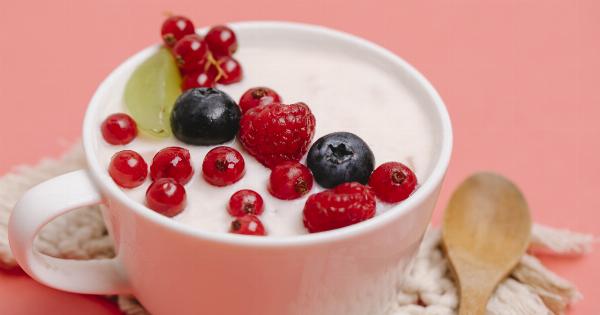Introduction:.
**1. Avocado
**Avocados are a fantastic source of healthy fats, fiber, and important nutrients. The monounsaturated fats in avocados help improve insulin sensitivity and stabilize blood sugar levels.
They also contain a natural plant sterol called beta-sitosterol, which helps lower cholesterol levels.
**2. Blueberries
**Blueberries are rich in antioxidants, including anthocyanins, which have been found to improve insulin sensitivity and reduce the risk of developing type 2 diabetes.
They are also low in calories and high in fiber, making them an excellent choice for blood sugar control.
**3. Cinnamon
**Cinnamon is a flavorful spice that is commonly used in desserts and beverages. Studies have shown that cinnamon can help lower blood sugar levels by increasing insulin sensitivity and improving glucose metabolism.
Sprinkling a little cinnamon on your meals or adding it to your morning coffee can have a significant impact on your blood sugar levels.
**4. Chia Seeds
**Chia seeds are a nutritional powerhouse. They are packed with fiber and healthy fats, including omega-3 fatty acids. The high fiber content of chia seeds slows down the absorption of carbohydrates, preventing blood sugar spikes.
They also help improve satiety, making them an excellent addition to a diabetes-friendly diet.
**5. Broccoli
**Broccoli is a cruciferous vegetable that is low in calories and high in fiber, making it an ideal choice for blood sugar control.
It also contains sulforaphane, a compound that has been shown to improve insulin sensitivity and reduce blood sugar levels.
**6. Greek Yogurt
**Greek yogurt is a high-protein dairy product that is rich in nutrients and beneficial for blood sugar management. Its high protein content helps slow down the digestion of carbohydrates, preventing blood sugar spikes.
Additionally, Greek yogurt is a good source of calcium, which plays a role in insulin secretion.
**7. Turmeric
**Turmeric is a golden spice with potent anti-inflammatory properties. Curcumin, the active compound in turmeric, has been found to enhance insulin sensitivity and reduce blood sugar levels.
Including turmeric in your cooking or consuming it as a supplement can be a beneficial addition to your blood sugar management plan.
**8. Spinach
**Packed with vitamins, minerals, and antioxidants, spinach is an incredibly nutritious leafy green vegetable. It contains a potent antioxidant called alpha-lipoic acid, which has been shown to reduce glucose levels and increase insulin sensitivity.
Eating spinach regularly can have a positive impact on blood sugar control.
**9. Walnuts
**Walnuts are a great source of healthy fats, protein, and fiber. They have been found to improve blood sugar control and reduce the risk of developing type 2 diabetes.
Including a handful of walnuts as a snack or adding them to salads can help stabilize blood sugar levels.
**10. Quinoa
**Quinoa is a nutritious grain that is high in protein and fiber. It has a low glycemic index and a unique combination of amino acids, making it an excellent choice for individuals with diabetes.
Consuming quinoa instead of refined grains can help regulate blood sugar levels and promote better overall health.
**11. Flaxseeds
**Flaxseeds are an excellent source of omega-3 fatty acids, fiber, and lignans. These tiny seeds have been shown to improve insulin sensitivity and reduce fasting blood sugar levels.
Adding ground flaxseeds to smoothies, yogurt, or baked goods is a convenient way to enjoy their health benefits.
**12. Green Tea
**Green tea is a popular beverage known for its numerous health benefits. It contains catechins, which help improve insulin sensitivity and regulate blood sugar levels. Additionally, green tea is rich in antioxidants, promoting overall well-being.
**13. Sweet Potatoes
**Sweet potatoes are a nutritious root vegetable that is rich in fiber, vitamins, and minerals. They have a lower glycemic index compared to regular potatoes, meaning they do not cause blood sugar levels to rise as quickly.
Including sweet potatoes in your diet can help maintain stable blood sugar levels.
**14. Salmon
**Salmon is a fatty fish that is rich in omega-3 fatty acids, protein, and important nutrients. Studies have shown that consuming fatty fish like salmon regularly can improve insulin sensitivity and reduce the risk of developing type 2 diabetes.
**15. Garlic
**Garlic is not only a flavorful addition to meals but also a potent blood sugar regulator. It has been found to improve insulin sensitivity and reduce fasting blood sugar levels.
Including garlic in your cooking can be a simple and effective way to support healthy blood sugar control.
**16. Lentils
**Lentils are a type of legume that is high in fiber and protein. They have a low glycemic index and can help stabilize blood sugar levels. Lentils also contain beneficial polyphenols that contribute to better blood sugar management.
**
17. Eggs
**Eggs are a versatile and nutrient-rich food that can support blood sugar control. They contain high-quality protein and healthy fats, helping regulate glucose absorption and insulin secretion.
Incorporating eggs into your diet can provide essential nutrients while promoting stable blood sugar levels.
**18. Kale
**Kale is a leafy green vegetable packed with vitamins, minerals, and antioxidants. It contains an antioxidant called alpha-lipoic acid, which has been shown to improve insulin sensitivity and reduce blood sugar levels.
Including kale in your diet can contribute to better overall blood sugar management.
**19. Almonds
**Almonds are nutrient-dense nuts that are rich in healthy fats, protein, and fiber. They have been found to improve blood sugar control, reduce insulin resistance, and lower the risk of developing type 2 diabetes.
Enjoying a handful of almonds as a snack can be a smart choice for blood sugar management.
**20. Ginger
**Ginger is a popular spice known for its anti-inflammatory and antioxidant properties. Studies suggest that ginger can help improve insulin sensitivity and lower blood sugar levels.
Incorporating ginger into your cooking or drinking ginger tea can be a flavorful and beneficial addition to your blood sugar management plan.
**21. Brussels Sprouts
**Brussels sprouts are part of the cruciferous vegetable family and are rich in fiber, vitamins, and minerals. They have a low glycemic index and contain compounds that help regulate blood sugar levels.
Including Brussels sprouts in your diet can support stable blood sugar control.
**22. Oatmeal
**Oatmeal is a nutritious whole grain that is high in fiber. It has a low glycemic index and can help regulate blood sugar levels.
The soluble fiber in oatmeal forms a gel-like substance in the digestive system, slowing down the absorption of glucose into the bloodstream.
**23. Vinegar
**Vinegar, especially apple cider vinegar, has been shown to have numerous health benefits, including blood sugar regulation. It has been found to improve insulin sensitivity and lower fasting blood sugar levels.
Consuming vinegar as part of your meal or diluted in water can have a positive effect on blood sugar management.
**24. Asparagus
**Asparagus is a nutritious vegetable that is high in fiber and essential vitamins. It contains a compound called inulin, which helps regulate blood sugar levels. Including asparagus in your meals can contribute to better blood sugar control.
**25. Brazil Nuts
**Brazil nuts are a type of nut that is rich in selenium, an important mineral that plays a role in insulin sensitivity. They also contain healthy fats and fiber, making them a suitable choice for blood sugar management.
However, it is important to consume them in moderation due to their high calorie content.
**26. Oranges
**Oranges are delicious citrus fruits that are rich in vitamin C, fiber, and antioxidants. Despite being sweet, oranges have a low glycemic index and can be enjoyed by individuals with diabetes as part of a balanced diet.
The fiber in oranges helps slow down glucose absorption, preventing blood sugar spikes.
**27. Onions
**Onions are a versatile vegetable that offers various health benefits, including blood sugar regulation. They contain compounds that can enhance insulin sensitivity and lower blood glucose levels.
Adding onions to your meals can add flavor while supporting healthy blood sugar control.
**28. Tomatoes
**Tomatoes are low in calories and high in essential nutrients, including vitamin C and lycopene. They have a low glycemic index and are considered beneficial for individuals with diabetes.
Incorporate tomatoes into your meals, whether fresh or cooked, to support stable blood sugar levels.
**29. Pumpkin Seeds
**Pumpkin seeds are a nutritious snack option that is rich in fiber, healthy fats, and essential minerals. They have been found to lower blood sugar levels and improve insulin sensitivity.
Enjoying a handful of pumpkin seeds as a snack can help maintain balanced blood sugar levels.
**30. Strawberries
**Strawberries are flavorful berries that are low in calories and high in fiber and antioxidants. They have a low glycemic index and can be included in a diabetes-friendly diet.
The fiber content in strawberries slows down digestion and the release of glucose into the bloodstream.
**Conclusion:.
**Incorporating these 30 superfoods into your diet can contribute to better blood sugar management and overall well-being.
Remember to consult with a healthcare professional or a registered dietitian to create a personalized meal plan that suits your specific needs. Enjoy the delicious flavors and health benefits these superfoods offer while promoting stable blood sugar levels.



























